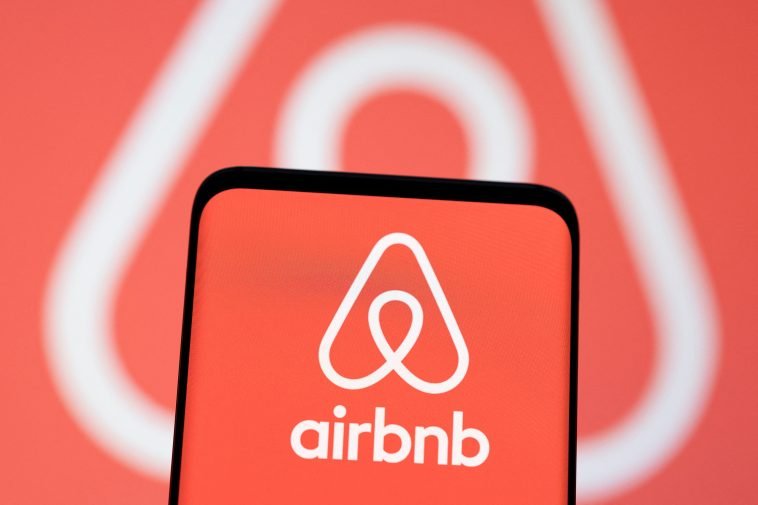Introduction.
I have always found the idea of renting a house and listing it on Airbnb both exciting and a smart way to earn extra income.
This guide shares my journey and the steps I took to turn a rented property into a welcoming space for travelers.
I hope this helps you feel more confident about starting your own Airbnb adventure.
Why This Topic Matters
Turning a rented house into an Airbnb listing can offer more than just extra cash—it opens up a world of new experiences.
Many hosts have discovered that short-term rentals help them meet people from around the globe, improve their hospitality skills, and support local communities.
According to Airbnb, hosts helped generate over $110 billion for local economies in 2021.
This statistic shows that being an Airbnb host can be a rewarding venture, not only financially but also by adding a personal touch to travelers’ experiences.
Discovering the Airbnb Opportunity
Airbnb has grown into one of the most popular platforms for short-term rentals, with more than 7 million listings across over 220 countries. For me, this growth was a signal that there is a strong demand for unique and comfortable stays.
If you have a rented house that you believe has potential, there is a good chance that travelers will appreciate a cozy, well-managed space.
Before diving in, it’s essential to understand the opportunity, learn from others, and prepare to meet both the expectations of guests and the requirements of your rental agreement.
How Do I Rent a House and Put It On Airbnb?
Planning and Research
Before you jump into renting a house for Airbnb, I found that research is key. Here are some important points I looked into:
Check Your Rental Agreement
One of the first things to do is to review your rental agreement. Some contracts do not allow subletting or running a business from the property.
It is important to discuss your plans with your landlord and get written permission if needed. Open communication builds trust and avoids any legal issues down the line.
Understand Local Laws and Regulations
Many cities have rules about short-term rentals. I spent time reading local government websites and even talked to other hosts to get a clear idea of what was allowed.
Some places require a permit or have limits on the number of days you can rent out a property. Knowing these rules in advance helps me plan properly and avoid unexpected fines or legal problems.
Learn from Other Hosts
I joined online communities and local meet-ups for Airbnb hosts. Hearing real-life stories and tips from people who have already been through the process gave me practical insights.
These groups can offer help on topics such as setting competitive prices, dealing with difficult guests, and maintaining the property.
One useful resource I found was the Airbnb Community Center, which provides a space to ask questions and share experiences.
Finding the Right Property
Not every rented house will work perfectly as an Airbnb. I spent time thinking about what makes a property stand out. Here are some aspects I considered:
Location
A good location can make a huge difference. A house near tourist attractions, public transport, or in a quiet neighborhood can attract more bookings. I always check out the local amenities and talk to neighbors to get a sense of the area.
Condition of the Property
The condition of the house is important for guest satisfaction. If a property needs repairs or a fresh coat of paint, I factor in these improvements as part of the investment. A well-maintained home not only looks inviting in photos but also helps you earn better reviews.
Cost vs. Profit
Before signing a lease, I ran the numbers. I compared the monthly rental cost with the potential earnings from Airbnb. This helped me decide if the investment would be worthwhile. I also looked into expenses like cleaning, maintenance, and any required renovations.
Setting Up Your Airbnb Listing
Once I had all the research in hand and the property secured, it was time to create a listing that stands out.
Take Great Photos
Good photos are crucial. I hired a photographer to capture bright, clean, and welcoming images of the house.
High-quality photos show off the unique features of your space and give guests a clear idea of what to expect.
Write a Clear, Honest Description
I made sure my listing description was detailed and honest. I highlighted the best features of the house, the nearby attractions, and any amenities guests might enjoy.
Being clear about house rules and check-in procedures helped manage guest expectations from the start.
Set a Competitive Price
Pricing your listing appropriately can be a balancing act. I used Airbnb’s pricing tools and checked similar listings in the area to set a price that was fair and competitive. Special offers or discounts for longer stays can attract more bookings and boost your occupancy rate.
Managing Bookings and Guest Experiences
Running an Airbnb isn’t just about setting up a listing. It also involves managing bookings and ensuring that guests have a pleasant experience.
Communication is Key
I learned that clear and prompt communication with guests is one of the best ways to get positive reviews.
Answering questions quickly, providing local tips, and being available to resolve any issues help build trust and ensure a smooth stay.
Keep the House Clean and Well-Maintained
Maintaining a clean and inviting space is critical. I hired a reliable cleaning service to help keep the house spotless between bookings.
I also set up regular maintenance checks to address any issues before they became a problem.
Ask for Feedback
After each stay, I ask my guests for feedback. This not only helps me improve but also shows that I care about their experience. Positive reviews build your reputation and encourage future bookings.
Tips and Tricks for Success
Here are a few extra tips I found useful along the way:
- Be Flexible: Sometimes things do not go as planned. Being flexible with check-in times or handling unexpected issues with a smile can make all the difference.
- Invest in Small Touches: Little extras like a welcome basket, local maps, or a guest book with recommendations can enhance the guest experience.
- Stay Updated: The short-term rental market changes often. I keep an eye on local news and trends to stay ahead of any changes in regulations or market demands.
- Protect Yourself: Consider insurance that covers short-term rentals and understand your liabilities. A good host is always prepared for unexpected events.
FAQs
Do I need permission from my landlord to rent out a house on Airbnb?
Yes. It is important to have clear permission from your landlord. This avoids any legal issues and ensures everyone is on the same page.
How do I know if my property is a good fit for Airbnb?
Look at the location, condition, and overall appeal of your property. Research similar listings in the area to see what guests are looking for and what they are willing to pay.
What if local laws do not allow short-term rentals?
In such cases, it might be better to reconsider or look into other options. Sometimes local governments offer exceptions or special permits, so it is worth checking with local authorities.
How can I handle guest complaints effectively?
Stay calm, listen to the guest’s concerns, and try to resolve issues quickly. Good communication often turns a negative experience into a positive review.
Further Resources
If you want to dive deeper into any of these topics, here are some resources I found helpful:
- Airbnb Community Center – A place to share experiences and get advice from other hosts.
- Airbnb Help Center – Useful for understanding policies and getting support directly from Airbnb.
- [Local Government Websites] – Check your city’s or county’s website for the latest rules on short-term rentals.
- [Host Tools and Apps] – Tools like pricing calculators and calendar management apps can simplify your work and improve your efficiency.
In Conclusion
Renting a house and listing it on Airbnb can be a fulfilling way to earn extra income and meet new people.
The process involves careful planning, a bit of creativity, and a willingness to learn from experience.
I have shared the steps that helped me succeed, and I hope you find this guide useful as you plan your own Airbnb journey.
Every host has their own story, and there is always something new to learn in this ever-changing market.
So, what do you think? Are you ready to explore the idea of renting a house and putting it on Airbnb?





GIPHY App Key not set. Please check settings